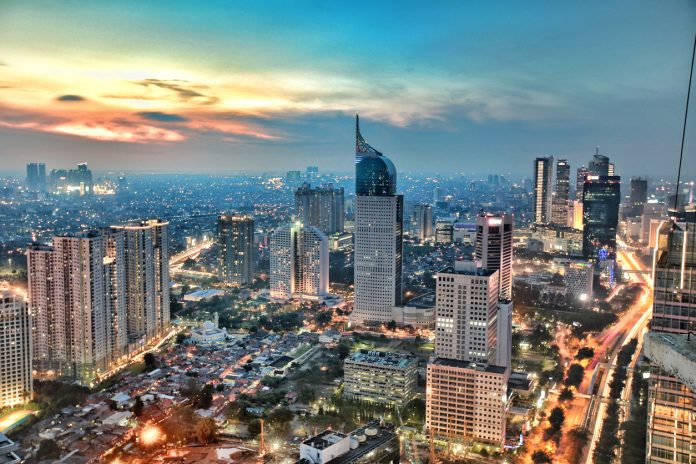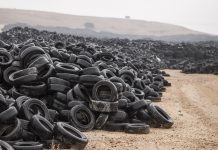Economist Professor John Ure charts the profits and progress, in terms of how Indonesia’s state-owned enterprises drive the green transition
Leading into the 21st Century, Indonesia was not one of the “Newly Industrialized Countries.” By 2024, in the words of the World Bank, Indonesia is “rapidly emerging as a powerhouse… boasting a GDP over US$1 trillion”. (1) The chart linked below shows the remarkable surge in growth from 2020 onwards as the economy recovered from COVID-19.
Growth of this magnitude typically poses many challenges for emerging economies. This is especially true when the economy relies upon extractive industries for exports and domestic power supplies, as global gas and oil price fluctuations can play havoc with national budgets.
Indonesia’s two state-owned (SOE) mining, petrochemical, and energy companies, PERTAMINA and MIND ID, have become very profitable as post-COVID demand surged. By 2023, profitability was Indonesian Rupiah (IDR 14) trillion and IDR 7 trillion, respectively, the second and fifth-highest SOE dividend contributors to Indonesia’s economy. According to Nicke Widyawati, President Director of PERTAMINA, a growing emphasis on operational efficiencies has been an important factor in generating record profits of $1.25 billion. (2) According to sources, overall cost optimization from 2021 onwards has contributed to savings of up to $3.273 billion.
Indonesia must also transition to a green economy, using the profitability of the two SOEs to invest in renewable energy, boost local employment, and attract capital investment. Being especially rich in fossil fuels and minerals, such as nickel, gold, and aluminon, Indonesia faces the challenge of how to phase out the former and mine the latter while balancing the economic benefits; for example, feeding into batteries for EVs while restoring and conserving the natural capital of the land. The good news is that Indonesia is becoming a leader in this field among emerging economies.
Indonesia leads the way to a just energy transition partnership (JETP)
Indonesia was the first Asian economy to sign up for the Just Energy Transition Partnerships (JETP) scheme under the G20’s Partnership for Global Infrastructure and Investment (PGII) in 2022, the year Indonesia became chair of the G20. The Agreement was signed at the White House by President Biden, Indonesia’s President Joko Widodo, and other leaders from the International Partners Group (IPG), including the EU, the UK, and Japan. (3)
The partnership aims to mobilize $20 billion in public and private financing over a three-to-five-year period, using a mix of grants, concessional loans from G7 members, market-rate loans, guarantees, and private investments. In turn, Indonesia committed to reducing peaking its carbon emissions by 2030, capping them at 290 MtCO2 (down from the baseline of 357 MtCO2) and bringing the power sector’s net zero forward by ten years to 2050. Investment in renewables targets 34% of all power generated by 2030, roughly double 2022’s levels. (4)
Indonesia’s green transition and job creation
PERTAMINA and MIND ID already estimate achieving a carbon reduction of 1.3 MtCO2
from 2019-2023. The former points to its clean energy expansion as having saved local communities around IDR 2.5 billion ($161,290) per year in energy savings, which has been redirected to local businesses.
A key part of the green energy program is the Self-Sufficient Energy Villages (DEBs) across Indonesia. Through the DEBs, PERTAMINA has deployed 64 solar, 12 biogas, six hydropower, one solar-wind hybrid, and two biodiesel technologies to power homes and production tools in local communities. In Central Java, a DEB has developed a hydro-powered desalination plant. The DEBs are sustained by training local recruits in green energy projects. For example, the DEB in Rantau (Aceh) trains and employs disabled people in solar-powered motorcycle workshops.
Job creation has been at the forefront of Indonesia’s green strategy. Parallel to the recruitment of trainees through the launch of PERTAMINA’s solar and geothermal business lines, MIND ID has developed opportunities to work with green mineral materials through its subsidiary INALUM. The SOEs are also expected to create over 62,000 new jobs beyond the energy sector in areas like construction. Achieving these totals remains a work in progress. However, if realized, these targets will be an outstanding example of what emerging economies can achieve through a transition to renewable energy.
The JEPT program is designed to transition directly to renewables rather than adopt LNG as a staging post. Some countries have pushed back on this. Indonesia is showing the world that the transition is both possible and economically beneficial. Sources estimate that in 2023 alone, PERTAMINA’s green transition contributed IDR 1.3 trillion ($83.8 billion) to the economy, around 5% of GDP growth.
PERTAMINA’s current commitment is to a sustainable core business, with 60% of resources devoted to extraction, 25% to green refineries, and 15% to the green transition. It will be interesting to see how far these metrics shift toward transition. For investors in green projects and other emerging economies looking for reliable data and fruitful outcomes, Indonesia is the country to watch.
References
-
- https://www.db.com/news/detail/20240423-indonesia-as-a-rising-economic-powerhouse?language_id=1#:~:text=Indonesia%2C%20Southeast%20Asia%27s%20largest%20economy%2C%20is%20rapidly%20emerging,talented%20workforce%20have%20been%20key%20to%20Indonesia%E2%80%99s%20rise
- https://www.pertamina.com/en/news-room/news-release/pertamina-successfully-achieves-cost-optimization-of-up-to-usd-1.25-billion#:~:text=Various%20technology%20innovation%20programs%2C%20business%20model%20improvements%2C%20and,of%20up%20to%20USD%201.25%20billion%20in%202023
- https://www.whitehouse.gov/briefing-room/statements-releases/2022/11/15/indonesia-and-international-partners-secure-groundbreaking-climate-targets-and-associated-financing/#:~:text=Today%2C%20at%20the%20Partnership%20for%20Global%20Infrastructure%20and,%28JETP%29%20developed%20with%20Indonesia%20during%20its%20G20%20Presidency
- https://www.whitehouse.gov/wp-content/uploads/2022/11/Joint-Statement-1.pdf











